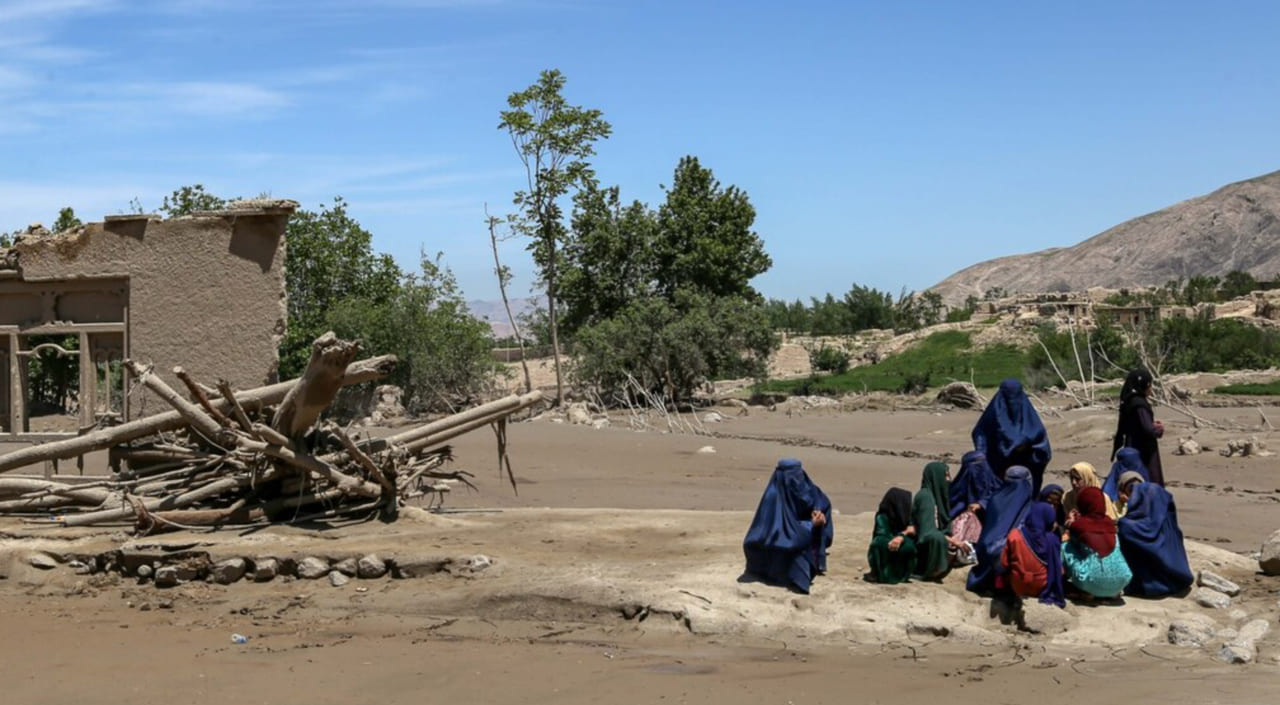Afghanistan, one of the world’s poorest nations, is grappling with severe consequences of climate change, ranking as the fourth most vulnerable country to its impacts. Decades of conflict and environmental degradation have compounded the crisis, leaving millions at risk, according to RFE/RL.

Rising global temperatures have intensified the frequency and severity of natural disasters in Afghanistan, including droughts, floods, and landslides. Over recent years, these events have worsened the country's ongoing humanitarian and economic crises. Millions face starvation, with livelihoods disrupted across the nation, where approximately 80% of the population relies on natural resources.
This year alone, floods killed over 300 people, displaced more than 20,000, and destroyed thousands of homes and farmlands. According to the United Nations Development Program (UNDP), the resulting economic losses exceed $400mn annually.
Afghanistan’s mean temperature has risen by 1.8°C since 1950, outpacing the global average increase of 1.5°C. This rapid warming has devastated agriculture, which remains the backbone of the nation’s economy. Additionally, the country’s hydrological infrastructure has deteriorated, exacerbating water scarcity and impacting Afghanistan’s role as a critical source of freshwater for its neighbors. UNICEF reports that 80% of Afghans lack access to safe drinking water, with over 64% of the population struggling under drought conditions.
The International Organization for Migration (IOM) highlights that climate-induced displacement is becoming a significant issue. A growing number of Afghans are forced to migrate internally or leave the country entirely as environmental conditions worsen.
The Taliban’s takeover in 2021 has hindered Afghanistan’s ability to address climate challenges. The collapse of the Western-backed government led to an immediate cessation of billions of dollars in international development aid. Humanitarian assistance has since sharply declined, driven by concerns over the Taliban’s human rights record.
While a Taliban delegation participated as an observer at the UN Climate Conference in Baku, the group's lack of international recognition and limited resources pose significant barriers to securing much-needed global support.
Although Afghanistan contributes minimally to global greenhouse gas emissions, it faces some of the most severe consequences of climate change. Experts warn that without immediate international collaboration, Afghanistan’s fragile state will struggle to mitigate and adapt to these challenges.
Follow Daryo's official Instagram and Twitter pages to keep current on world news.
Comments (0)